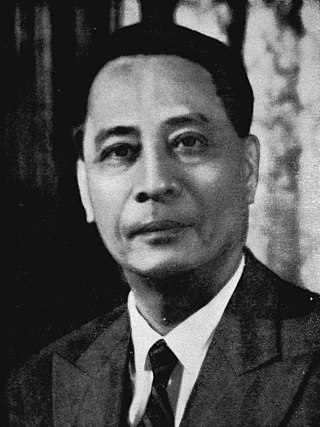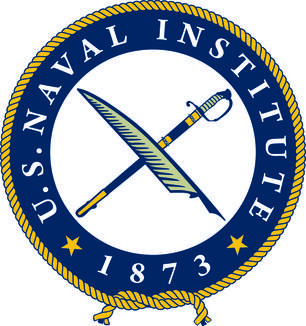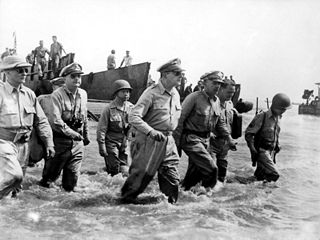Related Research Articles

Douglas MacArthur was an American military leader who served as General of the Army for the United States, as well as a field marshal to the Philippine Army. He served with distinction in World War I, was Chief of Staff of the United States Army during the 1930s and played a prominent role in the Pacific theater during World War II. MacArthur was nominated for the Medal of Honor three times, and received it for his service in the Philippines campaign. This made him along with his father Arthur MacArthur Jr. the first father and son to be awarded the medal. He was one of only five men to rise to the rank of General of the Army in the U.S. Army, and the only one conferred the rank of field marshal in the Philippine Army.

Chester William Nimitz was a fleet admiral in the United States Navy. He played a major role in the naval history of World War II as Commander in Chief, US Pacific Fleet, and Commander in Chief, Pacific Ocean Areas, commanding Allied air, land, and sea forces during World War II.

The Civil War is a 1990 American television documentary miniseries created by Ken Burns about the American Civil War. It was the first broadcast to air on PBS for five consecutive nights, from September 23 to 27, 1990.

Manuel Acuña Roxas was a Filipino lawyer and politician who served as the fifth President of the Philippines from 1946 until his death in 1948. He served briefly as the third and last President of the Commonwealth of the Philippines from May 28, 1946, to July 4, 1946, and became the first President of the Independent Third Philippine Republic after the United States ceded its sovereignty over the Philippines.

The United States Naval Institute (USNI) is a private non-profit military association that offers independent, nonpartisan forums for debate of national security issues. In addition to publishing magazines and books, the Naval Institute holds several annual conferences. The Naval Institute is based in Annapolis, Maryland.
Eyes on the Prize: America's Civil Rights Movement is an American television series and 14-part documentary about the 20th-century civil rights movement in the United States. The documentary originally aired on the PBS network, and it also aired in the United Kingdom on BBC2. Created and executive produced by Henry Hampton at his film production company Blackside, and narrated by Julian Bond, the series uses archival footage, stills, and interviews by participants and opponents of the movement. The title of the series is derived from the title of the folk song "Keep Your Eyes on the Prize", which is used as the opening theme music in each episode.

The Philippines campaign, Battle of the Philippines, Second Philippines campaign, or the Liberation of the Philippines, codenamed Operation Musketeer I, II, and III, was the American, Mexican, Australian and Filipino campaign to defeat and expel the Imperial Japanese forces occupying the Philippines during World War II.

The South West Pacific theatre, during World War II, was a major theatre of the war between the Allies and the Axis. It included the Philippines, the Dutch East Indies, Borneo, Australia and its mandate Territory of New Guinea and the western part of the Solomon Islands. This area was defined by the Allied powers' South West Pacific Area (SWPA) command.

The Japanese occupation of the Philippines occurred between 1942 and 1945, when the Japanese Empire occupied the Commonwealth of the Philippines during World War II.

This is the service summary of Douglas MacArthur, a General in the United States Army, who began his career in 1903 as a second lieutenant and served in three major military conflicts, going on to hold the highest military offices of both the United States and the Philippines.

The Philippine Army was established on December 21, 1935, as the Army of the Philippines, with a general headquarters in Manila, and units and formations based throughout the provinces of the Philippines.

The Government of the Commonwealth of the Philippines in exile was a continuation of the government of the Commonwealth of the Philippines after they had been evacuated from the country during World War II. The Commonwealth of the Philippines was self-governing, although under the ultimate control of the United States.
George H.W. Bush is a 2008 two-part biographical television film about former United States President George H. W. Bush. Produced by PBS for the American Experience documentary program, it recounts Bush's life from his childhood and experience in World War II up to the end of his presidency in 1993. Written, co-produced, and directed by Austin Hoyt, the film aired on PBS in two parts on May 5 and 6, 2008.
Truman is a 1997 two-part television documentary film about Harry S. Truman, the 33rd President of the United States. Produced by PBS for The American Experience documentary program, it recounts Truman's life from childhood to his presidency. Written, co-produced, and directed by David Grubin, the film first aired on PBS in two parts on October 5 and 6, 1997.
Jimmy Carter is a 2002 two-part television documentary film about Jimmy Carter, the 39th President of the United States. Produced by PBS for the American Experience documentary program, it recounts Carter's life from childhood in Georgia to his post-presidency as peacemaker. The film was written, produced, and directed by Adriana Bosch, and was first aired on PBS in two parts on November 11 and 12, 2002.
Ulysses S. Grant is a 2002 two-part television documentary film about Ulysses S. Grant, the 18th President of the United States. Produced by PBS for the American Experience documentary program, it recounts Grant's life from his childhood in Ohio to his presidency, with narration by Liev Schreiber. The film was released in two parts on May 5 and 6, 2002, with part one written, produced, and directed by Adriana Bosch, and part two written, produced, and directed by Elizabeth Deane.
Bataan Rescue is a 2003 television documentary film about the Raid at Cabanatuan. Produced by PBS for the American Experience documentary program, it begins with the Fall of Bataan in 1942 up to the titular event in January 1945, where more than 500 prisoners of war were liberated from a Japanese camp in Cabanatuan, Nueva Ecija. Directed by Peter Jones and written and produced by David Axelrod, the film first aired on PBS in the United States on July 7, 2003.
Crucible of Empire: The Spanish–American War is a 1999 television documentary film about the Spanish–American War and American imperialism at the turn of the 20th century. Produced by the Great Projects Film Company and South Carolina ETV for PBS, it details how the United States' imperial ambitions largely grew out of its war with the Spanish Empire and was the harbinger for the American Century. Directed by Daniel A. Miller, written and produced by Miller and Daniel B. Polin, and narrated by Edward James Olmos, the film first aired on PBS in the United States on August 23, 1999.
LBJ is a 1991 two-part television documentary film about Lyndon B. Johnson, the 36th president of the United States. Produced by PBS for The American Experience documentary program, it recounts Johnson's life from his childhood to his presidency up to his death. Written, co-produced and directed by David Grubin and narrated by David McCullough, the film first aired on PBS in two parts on September 30, 1991.

The Philippines being one of the major theaters of World War II, has commissioned a number of monuments, cemeteries memorials, preserved relics, and established private and public museums, as well as National Shrines, to commemorate battles and events during the invasion, occupation, and liberation of the country. The United States and Japan also has established a number of memorials in the country.
References
- 1 2 3 4 5 6 7 8 9 10 "MacArthur - Credits". PBS . WGBH Educational Foundation . Retrieved September 20, 2020.
- 1 2 "American Experience - MacArthur". Amazon.com . Amazon.com, Inc. Retrieved September 20, 2020.
- ↑ Goodman, Walter (May 17, 1999). "TELEVISION REVIEW; The General at the Center of the Stage". The New York Times . p. 6. Retrieved September 21, 2020.
- ↑ Jones, Shannon (May 27, 1999). "Documentary on Douglas MacArthur raises issues of contemporary importance". World Socialist Web Site . International Committee of the Fourth International. Retrieved September 20, 2020.
- ↑ The American Experience: MacArthur [VHS]. ISBN 0780625323.